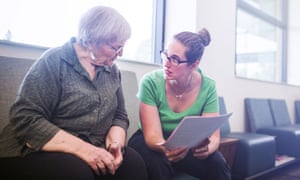Five ways to safely research your health symptoms online

Be confident , but considerate
There is no need for you to feel self-conscious about letting your GP know that you have researched your symptoms online. Your health means more to you than it does to anyone else, so embrace the information at your fingertips: it may help your doctor to help you. But it is important to remember that they are the expert, and to respect their time limitations. Before your appointment, form some plan for how to structure and present your research so that your doctor can understand everything you are saying within a set timeframe.
Focus on symptoms
Both in doing your research and in presenting your findings to your doctor, focus on your specific symptoms. You are the only one who knows exactly what you are feeling, so write it down as a short list, for example headache, indigestion, dizziness etc. Be clear and to the point. If they feel the need to explore any of those symptoms further, they will ask you to elaborate. If you are going to take in some printouts or notes, stick to those facts that relate to your specific symptoms, and demonstrate how they correlate.
Check your sources
Misinformation abounds online: make sure the website you are looking at is credible. The NHS website is a good place to start; you can also look for sources accredited under its Information Standard, a certification process established by the Department of Health. Another source of credible, quality health information online is the Health on the Net Foundation, a nonprofit organisation tied to the World Health Organization.
Don’t get carried away
Don’t panic, no matter what you think you have discovered about your symptoms and potential diagnoses. It’s quite common to play a worst-case scenario in your head, but this is not your goal here. Remain calm. Focus on the objective: to understand what you are feeling, to gather the right information and to have a more informed discussion with your GP. Let them take charge of the diagnosis.
Don’t play ‘internet versus doctor’
Researching your health online is not about the internet having more or better information than your doctor. This is a collaboration, collating information from different sources and interpreting and using it intelligently. You are in your doctor’s office to have a discussion, not to challenge their knowledge; approach it with the mindset that you are coming together to find a solution. Now that you are more knowledgable about your symptoms or condition, you can hope to understand the conversation better. Mutual respect is important, as is listening.
[“source=theguardian”]

